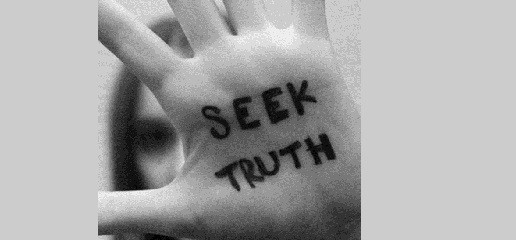
I can think of no more fitting way to conclude the school year than with excerpts from the retirement speech delivered by retiring Glenbrook North High School social studies teacher, James McPherrin, who is retiring after 33 years of teaching.
The words he expressed put to shame countless commencement speeches by celebrities who have little to offer students other than pedestrian cliches. It would behoove administrators, faculty, and students to hear Mr. McPherrin’s speech at the start and end of every school year.
Mr. McPherrin offers wisdom and erudition through eloquent prose that points those who have ears to hear toward truth:
St. Thomas More, the intrepid 16th century chancellor to King Henry VIII of England, once said, “When statesmen forsake their own private consciences for the sake of their public duties, they lead their country by a short route to chaos.” Now, I would suggest that the very same quotation might be tailored so as to apply directly to teachers. It would read, “When teachers forsake their own private consciences for the sake of their public school duties, they lead their students by a short route to chaos.”
Thomas More was among the sterling individuals in the western intellectual tradition who understood well the necessary relationship between the natural law and the human law, and that circumstances often challenge us to acknowledge the rational demands the former places upon the latter. More, as we know, would later sacrifice his very life in defense of that compelling idea. In essence, dear colleagues, please consider that our cardinal duty as instructors of the young is to shepherd them in their journey towards truth.
Whether it be European History, English Lit, Calc, Phys Ed, or Music, our task is to foster in students a love for and desire to acknowledge what is true. If such a premise does not inspire our efforts, then I’m afraid they might well be for naught. Make it your purpose to ignite the element of intellectual longing that exists in all young people; that desire to know, that desire to bring order out of chaos. Give them that education to which the English writer, G.K. Chesterton, alluded, when he said, “Many are schooled, but few are educated.” There is a difference, and it would behoove us all to acknowledge it openly.
Furthermore, I would encourage you not to align yourselves with those forces within our noble field who would seek to rid the discussion of divine things from the intellectual discourse in our classrooms. This is an unfortunate act that flies in the face of a teacher’s visceral commitment to the free exchange of ideas. Steel yourselves against the notion that such discourse violates the separation of church and state. It doesn’t. A reflection of ethical ambivalence more than anything else, such an argument is a specious one, and those of us who purport to cherish freedom of expression, ought to find it intellectually repugnant. Students are naturally inclined to ask metaphysical questions. To do so is in complete keeping with their nature as young, sentient, beings. It is how they are wired, and to stifle such instincts, or, to attempt to coach them away, does them a grave disservice.
Once they understand the idea of truth and that things can be known — surprise, surprise — they naturally gravitate toward a desire to know in what truth has its origin. The logical consequences of such thinking may unsettle some of us. However, trepidation of that sort is the lamentable result of lost cultural moorings. To attenuate such discussions is to attenuate the very growth of our students’ scholarly faculties. It’s as plain as that! We were meant to contemplate higher things — most obviously within our English and history classrooms. Thomas Aquinas understood this as far back as the 1200s and explained quite clearly our human commission, when he said, if you’ll permit me, “Three things are necessary for the salvation of man: to know what he ought to believe; to know what he ought to desire; and to know what he ought to do.”
May we have the courage to let our students’ minds move freely and joyfully toward those things for which they were made; and if such pursuits lead them to apprehend that force through whom we live and move and have our being, then so must it be. We should view any attempt to stifle such dialogues as nothing less than an attack upon reason itself. A final quotation from the luminous G.K. Chesterton: “A dead thing can go with the stream, but only a living thing can go against it (Everlasting Man, 1925).
May we always have the strength and the wisdom to know when to swim against the stream.
Mr. McPherrin had this to say about his experience in public education: “It’s been a tough slog, but I think truth is making gains.” Our children deserve more teachers like James McPherrin, teachers who will, even in the face of obstacles, persevere in their labor to point students toward truth.























